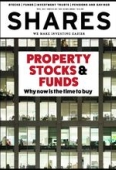Archived article
Please note that tax, investment, pension and ISA rules can change and the information and any views contained in this article may now be inaccurate.
Gilt market signals the alarm over a surprise rise in UK core inflation

Unexpectedly sticky UK inflation figures are wreaking fresh havoc in the UK government bond (gilt) market and raise the prospects of higher borrowing costs for longer for the Government, businesses and consumers.
A big driver behind the continuing surge in prices is food and there was at least a glimmer of hope here as the latest shop price data from the British Retail Consortium (30 May) saw annual food inflation fall from 15.7% to 15.4%.
On 24 May UK CPI (consumer price inflation) came in at 8.7%, down from 10.1% in the previous month but higher than the 8.1% which had been forecast. More significantly, core CPI increased from 6.2% to 6.8% against the flat reading which had been pencilled in.
Gilt yields have moved to within sight of the highs reached in the wake of last September’s disastrous mini-Budget in the wake of the data point. There are now expectations in some quarters the Bank of England will increase rates by 25 basis points at its next meeting on 22 June.
Just to add to the gloomy mood, US investment bank Goldman Sachs is forecasting UK inflation will not be back below the Bank of England’s 2% target for at least two-and-a-half years thanks to a sluggish decline in food price inflation and a tight labour market. Chancellor Jeremy Hunt is on record as saying a recession is a price worth paying to get inflation under control.
The higher cost of borrowing has implications for the millions of homeowners still on fixed-rate mortgages who either must fix at a much higher rate when their term expires or move on to the punitively expensive standard variable rate, as well as for people looking to get a loan to buy a new house.
In turn this has a knock-on effect on the housebuilders, given the dampening impact this is likely to have on the property market. Earlier in the year a drop in gilt yields and competition in
the mortgage market had helped drive rates to more affordable levels and supported a recovery in the sector.
Since the inflation figures were released, shares of the big housebuilders are between 5% and 6.5% lower.
The retailers also took a hit off the back of the stickier-than-anticipated inflation given the wider implications for consumers’ purchasing power.
Consultancy Capital Economics commented: ‘The most troubling aspect of April’s inflation data was evidence that price pressures are becoming increasingly domestically generated. Accordingly, we now expect the Bank of England to raise interest rates further than we previously thought, from 4.50% now to a peak of 5.25%.’
Important information:
These articles are provided by Shares magazine which is published by AJ Bell Media, a part of AJ Bell. Shares is not written by AJ Bell.
Shares is provided for your general information and use and is not a personal recommendation to invest. It is not intended to be relied upon by you in making or not making any investment decisions. The investments referred to in these articles will not be suitable for all investors. If in doubt please seek appropriate independent financial advice.
Investors acting on the information in these articles do so at their own risk and AJ Bell Media and its staff do not accept liability for losses suffered by investors as a result of their investment decisions.
Issue contents
Feature
Funds
Great Ideas
News
- Nvidia is world’s top AI pick after detailing huge spike in technology demand
- Gilt market signals the alarm over a surprise rise in UK core inflation
- Why insurers could face higher catastrophe claims this year and into the future
- Investors disappointment with Future sees shares down over 40% year-to-date
- Investors chase Mitchells & Butlers shares higher as consumers return to pubs

 magazine
magazine








